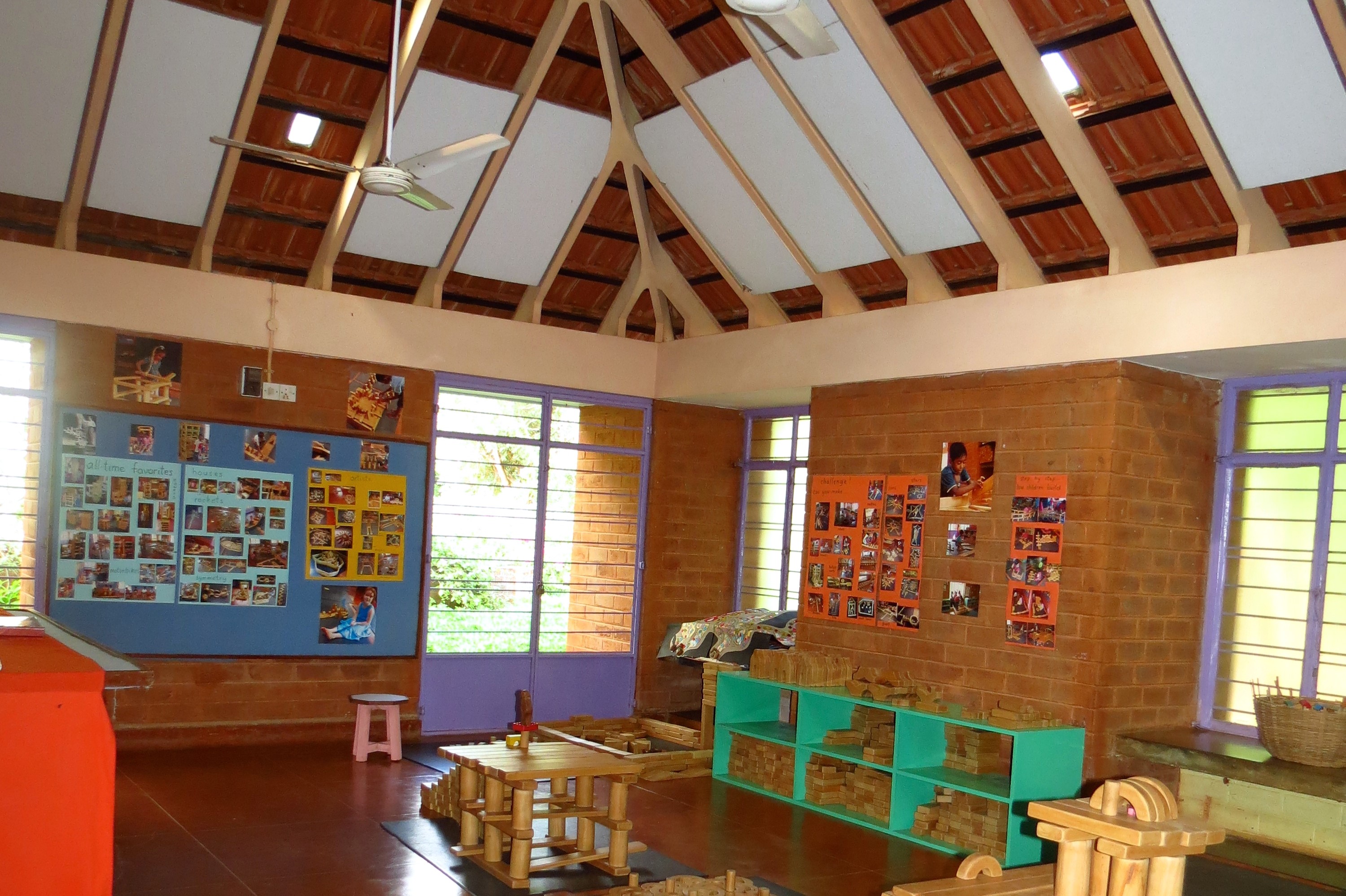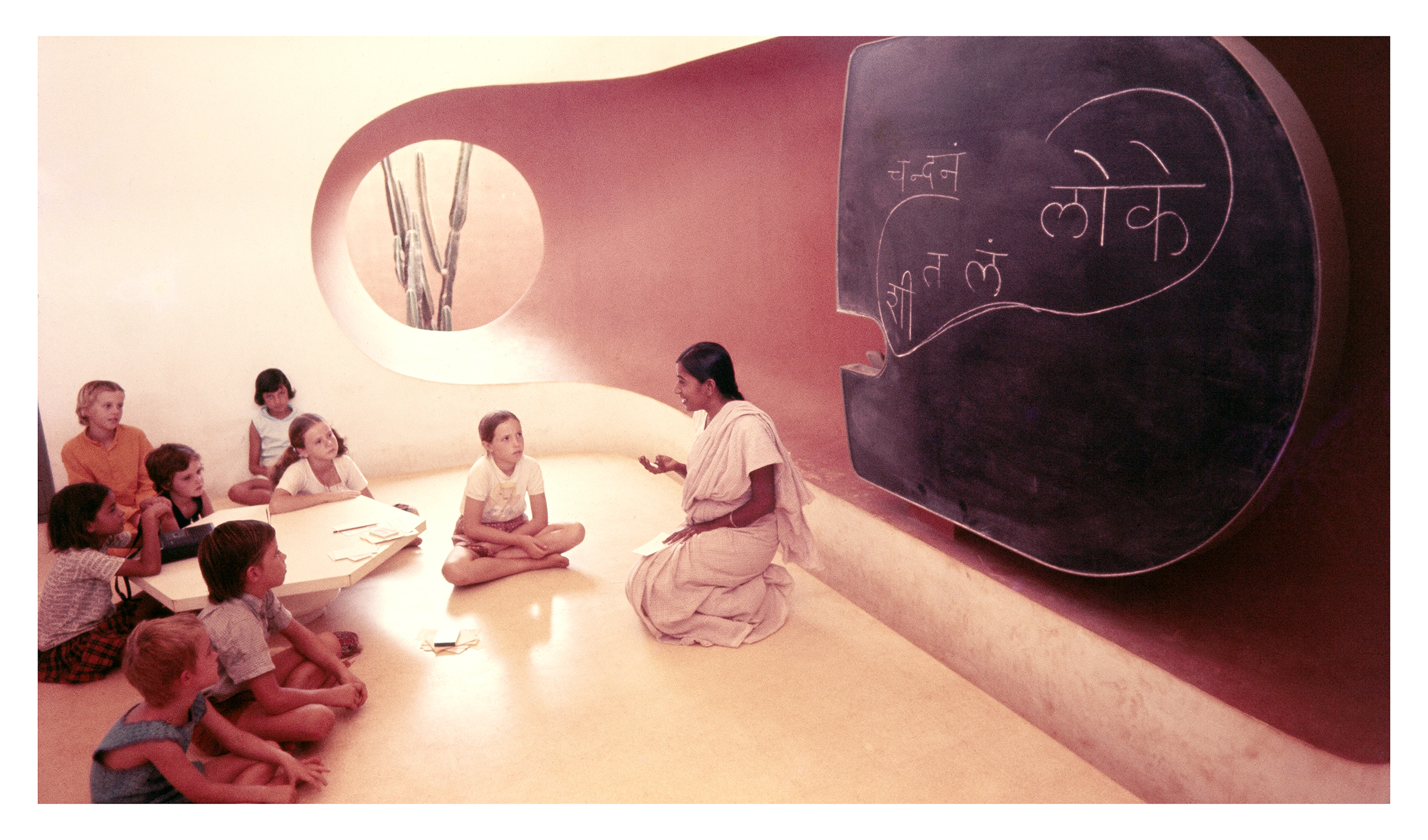The Learning Community
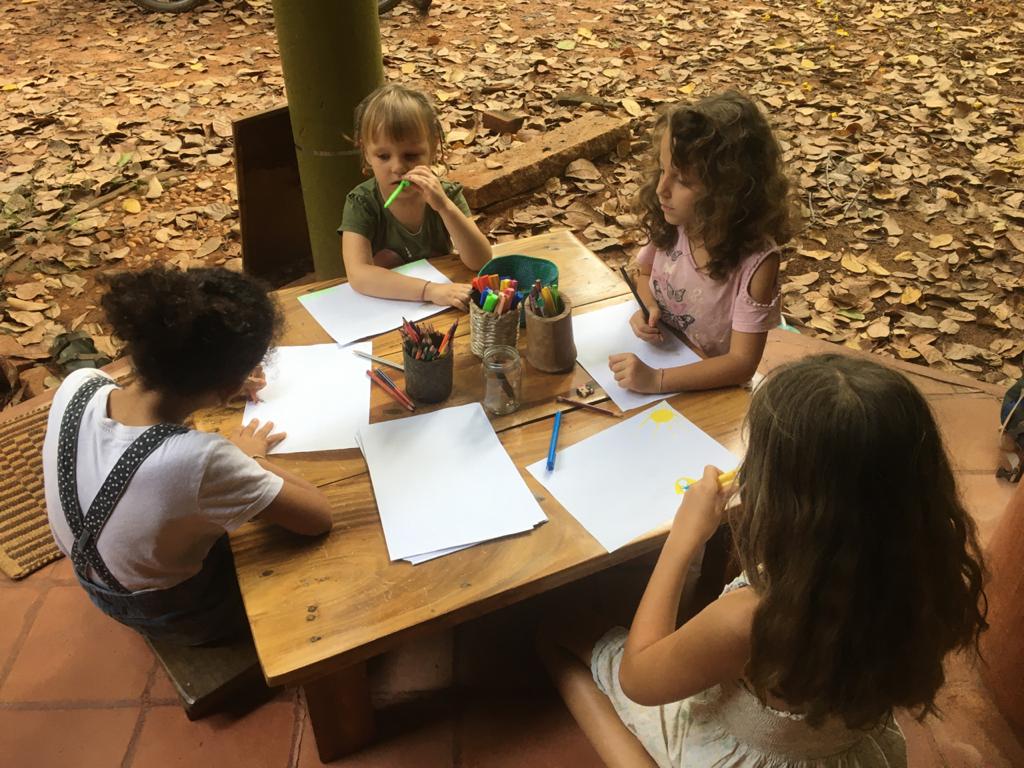
The Learning Community (TLC) began in 2009 to create a space where children and adults, by living and working together, can grow more conscious of their inmost being and learn to know, perfect and transform their instrument (body, life and mind) into the light of the spirit.
Moving from this half-conscious life to the level of integral living through a growing understanding of Integral Education is central to our vision. TLC is not a school in the traditional sense. It is about families and facilitators joining an individual and collective journey of implementing Integral Education for children.
Educational research lies at the heart of TLC. As a laboratory, and through ongoing active research, tools and methods for the implementation of Integral Education are emerging. Each year brings new insights that lead the way forward. It is a journey of trial and error, of studying the children and following what they show us. The three principles of true teaching as envisioned by Sri Aurobindo and the Mother form the base for the methodology used.
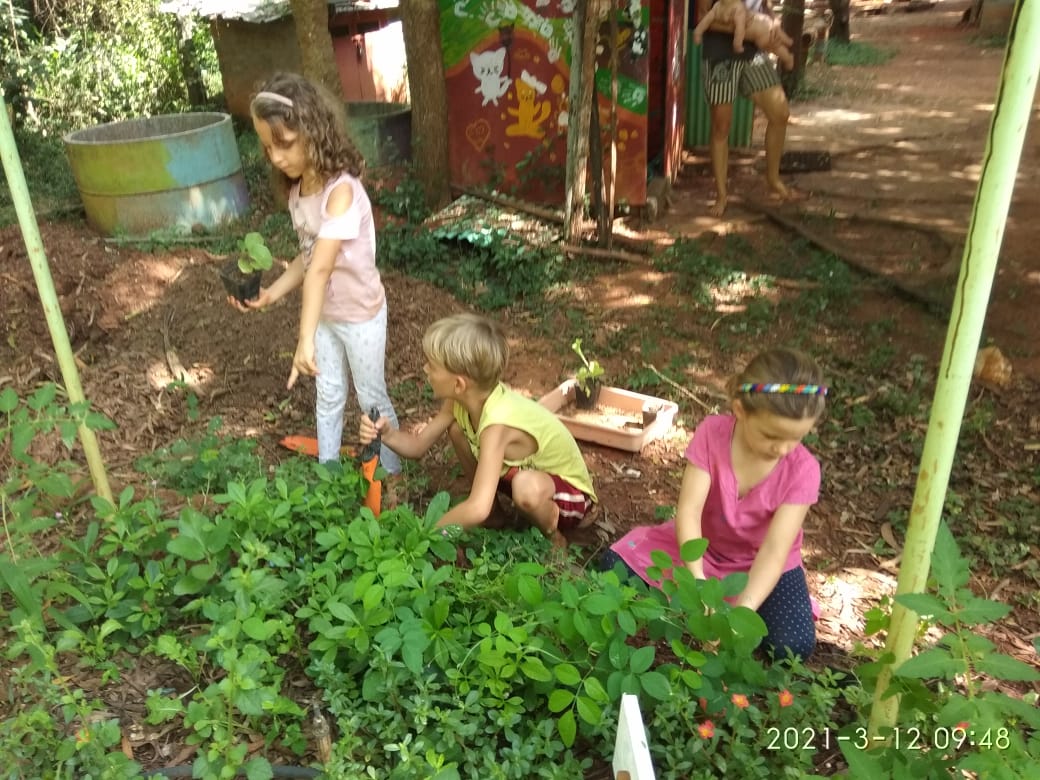
TLC each child is supported to get to know him/herself better. The adult facilitators foster the development of the child's self-esteem: not through praise but by the quality of listening, trust in their potential, and establishing an environment where they can develop independence allowing time to complete tasks, becoming active members of the community and developing their unique skills.
As important as the individual deepening, is the collective process in TLC. To encourage this, children of all ages work together, and groups form organically according to needs or interests. The children are naturally engaged with each other which motivates learning. Children also learn by observing others, and by imitating others. Through collaboration, the cognitive work is also socially distributed, and each individual brings skills or knowledge that another may lack. Auroville with its cultural diversity enriches what each child brings to the group.
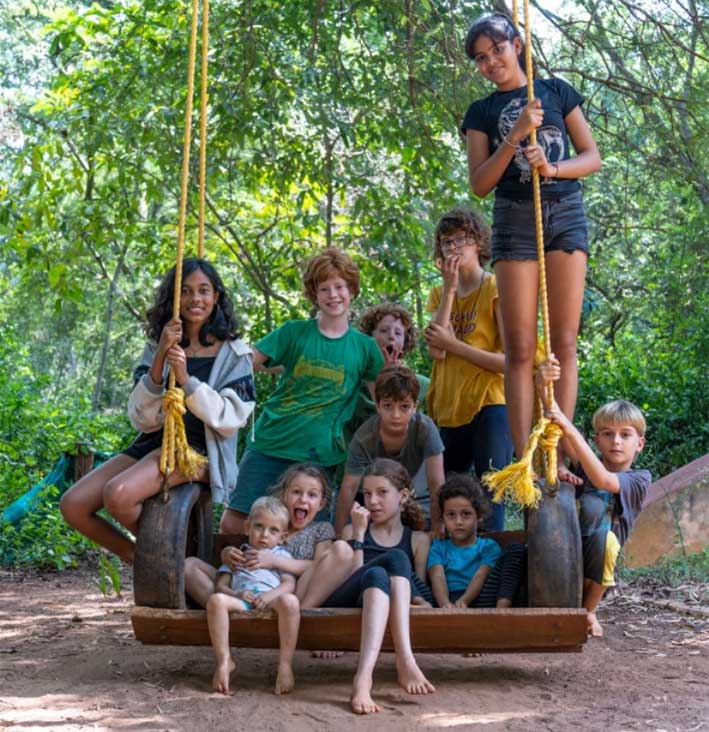
We are working with a democratic education approach, where the aim is to see the children empowered and participating in every area of their lives. TLC has weekly community gatherings planned and facilitated by the children, where adults and children have equal voice. Decisions are taken, action plans made and set into action, problems are discussed and solutions found.
When working with the principle that nothing can be taught, children develop their independence as individuals and members of society. TLC's approach encourages the child to persevere, to be courageous, to collaborate with others, to understand collective needs, to listen to inner needs, to observe individual patterns and to reflect on these. It also takes skills in planning, organization, self-discipline, self-direction, self-control and cooperation.
In TLC we aim to design a curriculum through which the children can train their instruments of knowing their faculties of consciousness. By shifting from focusing on product to process, TLC does not follow a traditional subject curriculum. We see that genuine interest cannot be forced. Instead, the aim is to follow that which is alive and relevant to each individual child, as the entrance point into interdisciplinary learning, building outward to help the child to expand his/her learning and to see the connection between all things, working from the near to the far.
A 3-hour, uninterrupted work period in the mornings has become fundamental to the approach in TLC, as it recognizes and respects individual variations in the learning process and allows each child to follow her/his work cycle, and develop an inner and outer discipline. This way each child can take the time she needs for different activities, thereby developing the capacity for concentration. The facilitators offer individual mini-lessons, or small-group lessons, inspiring. supporting and guiding the children and following each child in her or his needs, interests and work cycle. Children are allowed to move in the workspaces, which enables settling and concentration. Children may want to sit at a high table, or a low table, alone or together with someone, lying down on the floor, have a view of nature or facing a wall.
If human unity is going to manifest, we believe that it can do so only if the education offered to our children gives an appreciation of all that has been achieved by human cooperation instead of that which has brought division. We are working from that which is to that which shall be. This requires a movement of the children's" spirit on a deeper level so that our children develop a profound emotion and enthusiasm for this change in humanity. We don't distance real life from learning, we see real life as a learning opportunity. By making the child's life their school, we work from the near to the far.
Some examples of how real life is brought into their learning journey are cooking their lunch with seasonal produce from the Auroville farms, baking and serving customers in their teashop, cleaning and beautifying all our learning environments (we have no hired cleaning help), Montessori maths materials, creative and artistic expression, stories, nature explorations, lots of travel around the country to learn about its nature and people, appreciation and gratitude for simplicity through our principle of TWYG (take what you get whatever we do and wherever we go), and much more. And of course, taking part in the rich spectrum of experiences that Auroville has to offer.
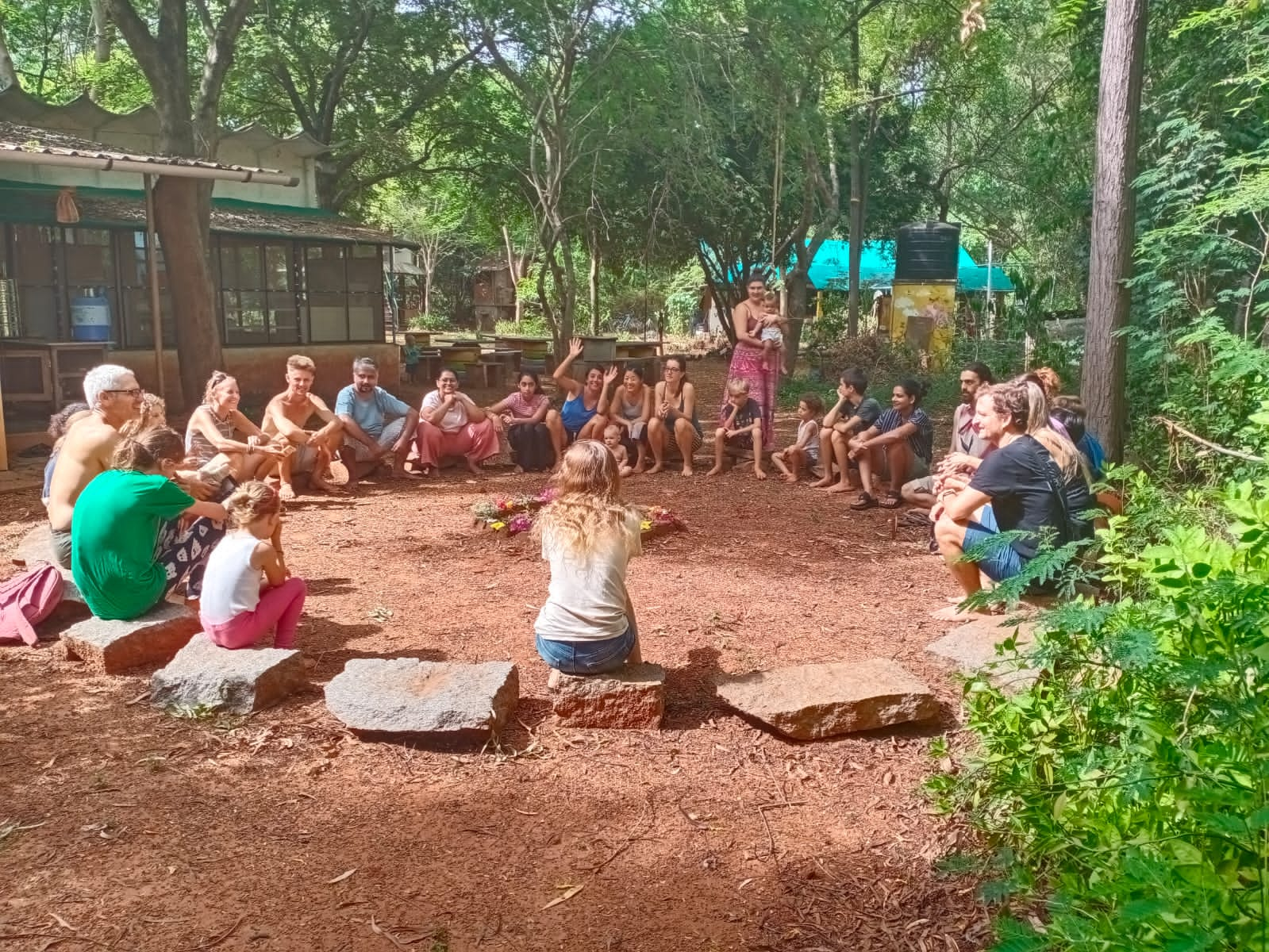
To create a community of children and adults who grow more conscious by living and learning together. We implement ways to practice the concept of Integral Education as defined by Mother and Sri Aurobindo where each part of the being is helped to grow into its full potential and the psychic being becomes the leader of one’s life and growth through an unending education.
Get in Touch
See Also
